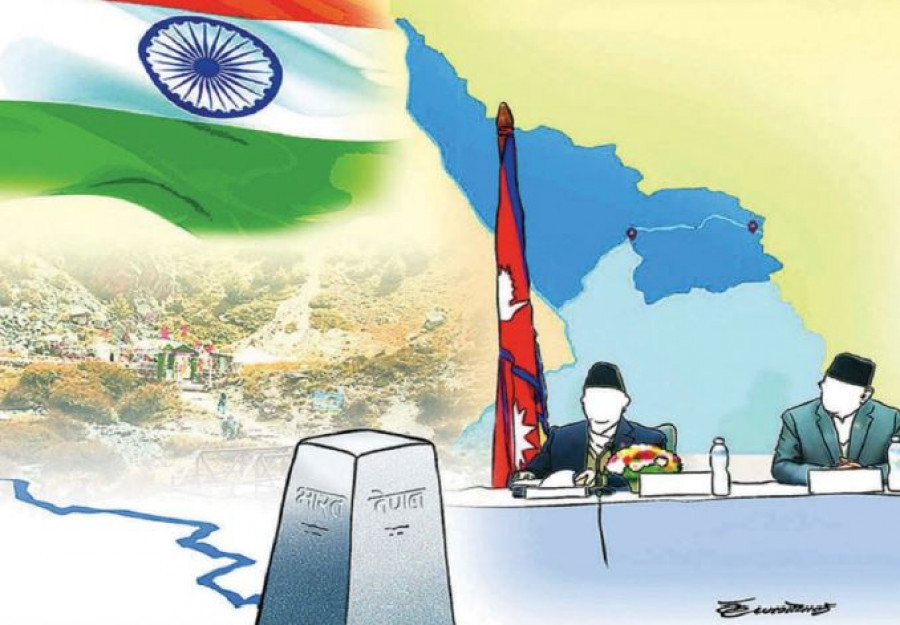Editorial
Good fences, good neighbours
Nepal should immediately call for dialogue on border issues with India at the highest level.
Warm people-to-people ties are often cited to describe Nepal-India relations—and rightly so. Such close ties between two neighbouring countries are indeed rare, and that is precisely why this “special relation” should not be taken for granted. But New Delhi is doing exactly that as it continues to unilaterally push ahead with the construction of an embankment on its side of the border in Khalanga of Darchula district in far western Nepal. On February 19, tensions had risen in the region when India started dredging the Mahakali River that forms the border to build the wall. People were pelting stones across the border at each other. The District Administration Office in Darchula wrote to its counterpart in Pithoragarh district of Uttarakhand state in India. A year later, the Nepali side is still to get a reply. Similar stone throwing occurred on Sunday, injuring four children on the Nepali side in the process. More such flare-ups are inevitable given India’s reluctance to heed Nepal’s concerns.
Problems on the western border go back a long way. On June 16, 2013, Khalanga bazaar was flooded by a swollen Mahakali. The flood changed the river’s course, pushing it into Nepali territory. Seven years later, officials from the two countries jointly studied local maps and concluded that some 200 ropanis of Nepali land had ended up on the other side of the river. But instead of acting on the findings, India even refused to acknowledge them. If anything, India hastened its construction on the river, increasing the risk of more devastating floods on the Nepali side. That is not all. Two Nepali nationals have been killed in the past two years owing to the carelessness of Indian border forces. Each time, Nepal sent India a diplomatic note, which the latter chose to ignore. Nepal could have done more to take up the matter at the highest level with India. It’s telling that over the past seven months Nepal’s envoy to India, Shankar Sharma, has been unable to meet any of the high-ranking Indian government officials, even as bilateral issues of concern mount. The Nepali ambassador to India cannot afford to have such a limited reach. Separately, Nepal could build good embankments on its side of the river to fortify its villages against future water-related calamities.
The onus is on India to prove through its actions that it values the special friendship with Nepal. How can India be so callous with a close friend? Why does it remain mum after so many queries from Nepal about the border? Is this treatment befitting of a confident emerging power that hopes to lead not just South Asia but the entire continent? There are myriad questions, yet few answers. Nepal-India border disputes, be it in Kalapani or Khalanga, are a tinderbox. Even a small spark could blow the whole thing up. It is worth reiterating that Nepal and India cannot enjoy normal relations so long as these pressing border issues are not amicably settled. Nepal should immediately call for dialogue about this with India at the highest level. What is needed is a sense of urgency and sustained pressure.




 8.22°C Kathmandu
8.22°C Kathmandu














